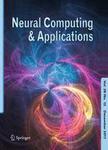版权所有:内蒙古大学图书馆 技术提供:维普资讯• 智图
内蒙古自治区呼和浩特市赛罕区大学西街235号 邮编: 010021

作者机构:Univ Teknol Malaysia UTM Big Data Ctr Skudai 81310 Johor Malaysia Univ Teknol Malaysia Ctr Environm Sustainabil & Water Secur IPASA Skudai 81310 Johor Malaysia Univ Teknol Malaysia Fac Comp Dept Informat Syst Skudai 81310 Johor Malaysia
出 版 物:《NEURAL COMPUTING & APPLICATIONS》 (神经网络计算与应用)
年 卷 期:2016年第27卷第8期
页 面:2551-2565页
核心收录:
学科分类:08[工学] 0812[工学-计算机科学与技术(可授工学、理学学位)]
基 金:Research Management Centre (RMC), Universiti Teknologi Malaysia (UTM) Universiti Teknologi Malaysia (UTM) Q.J130000.2428.02G50 Q.J130000.2428.02G38
主 题:Rainfall Forecasting Classification Artificial neural network Centripetal accelerated particle swarm optimization Gravitational search algorithm Imperialist competitive algorithm Data processing
摘 要:Artificial neural networks (ANNs) are being used increasingly to forecast rainfall. In this study, several meta-heuristic algorithms are applied to train an ANN in order to improve the accuracy of rainfall forecasting. Centripetal accelerated particle swarm optimization (CAPSO), a gravitational search algorithm and an imperialist competitive algorithm train a multilayer perceptron (MLP) network as a feed-forward ANN for rainfall forecasting in Johor State, Malaysia. They are employed to forecast the average monthly rainfall in the next 5 and 10 years using the two modes of original (without data preprocessing) and data preprocessing with singular spectrum analysis. Additionally, for each month, the average monthly rainfall during the last 5 years is computed and a month with less rainfall than the average is classified as 0 (light rainfall month), otherwise as 1 (heavy rainfall month). The attributes used in the classification can be applied to forecast the monthly rainfall. The proposed methods integrate the accuracy and structure of ANN simultaneously. The result showed that the hybrid learning of MLP with the CAPSO algorithm provided higher rainfall forecasting accuracy, lower error and higher classification accuracy. One of the main advantages of CAPSO compared with the other algorithms to train MLP includes the following: The algorithm has no need to tune any algorithmic parameter and it shows good performance on unseen data (testing data).